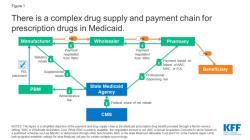Is Ativan a dangerous drug?
Is Ativan a Dangerous Drug? Facts and Warnings
What is Ativan?
Ativan is the brand name for lorazepam, a prescription medication in the benzodiazepine class. It’s commonly used to treat anxiety, insomnia, seizures, and sometimes for sedation before medical procedures.
Is Ativan Dangerous?
Ativan can be dangerous if not used properly, but when taken as prescribed under medical supervision, it can be effective and relatively safe for short-term use.
Key Facts and Risks:
| Aspect | Details |
|---|---|
| Addiction Potential | Ativan is addictive. Prolonged use or high doses can lead to physical and psychological dependence. |
| Overdose Risk | Overdose can cause severe drowsiness, respiratory depression, coma, or death, especially if combined with alcohol or opioids. |
| Withdrawal | Abruptly stopping Ativan after long-term use can cause serious withdrawal symptoms, including seizures. |
| Side Effects | Common side effects include drowsiness, dizziness, confusion, impaired coordination, and memory problems. |
| Use in Special Populations | Elderly, pregnant women, or people with liver/kidney issues should use caution as risks increase. |
| Short-term Use Only | Doctors typically recommend Ativan for short-term or intermittent use due to risks of tolerance and dependence. |
Warnings
Avoid alcohol or other CNS depressants while taking Ativan.
Do not operate machinery or drive until you know how Ativan affects you.
Follow your doctor’s dosage instructions strictly—never increase dose or frequency on your own.
Discuss any history of substance abuse with your doctor before using Ativan.
Inform your healthcare provider about all medications you take to avoid dangerous interactions.
Summary
Ativan is potentially dangerous, especially when misused or taken long-term. However, when used correctly under medical supervision, it is a valuable medication for managing anxiety and other conditions. Careful monitoring and adherence to medical advice minimize the risks.
Ativan (lorazepam) is a widely prescribed medication for anxiety and other conditions, but it is indeed considered a high-risk medication, particularly with long-term or improper use.
Is Ativan Considered a High-Risk Medication?
Yes, Ativan is considered a high-risk medication, primarily due to its potential for:
Dependence and Addiction: Even when taken as prescribed, individuals can develop physical dependence, meaning the body adapts to the drug's presence and experiences withdrawal symptoms if it's stopped abruptly.
This can progress to addiction, characterized by compulsive drug-seeking behavior. Severe Withdrawal Symptoms: Abrupt discontinuation can lead to potentially life-threatening withdrawal symptoms, including seizures, severe anxiety rebound, and psychosis.
Overdose Risk, especially with other CNS Depressants: While rare when taken alone at prescribed doses, an overdose can be fatal if Ativan is combined with other central nervous system (CNS) depressants like alcohol, opioids, or other sedatives.
Side Effects: It can cause significant side effects such as drowsiness, dizziness, impaired coordination, and cognitive difficulties, which increase the risk of accidents and falls, particularly in older adults.
What Makes Ativan Potentially Dangerous?
Several factors contribute to Ativan's potential danger:
Central Nervous System (CNS) Depression: Ativan works by enhancing the activity of GABA, a neurotransmitter that slows down brain and nervous system activity.
While this reduces anxiety, excessive CNS depression can lead to slowed breathing, extreme drowsiness, confusion, coma, and even death, especially when combined with other depressants. Risk of Misuse and Addiction: Ativan is a Schedule IV controlled substance because it has a known potential for misuse, dependence, and addiction.
Taking higher doses or using it more frequently or for longer than prescribed significantly increases these risks. Physical Dependence and Life-Threatening Withdrawal: As the body adapts to Ativan, it becomes dependent.
Stopping suddenly can trigger a severe withdrawal syndrome that includes rebound anxiety, insomnia, tremors, increased heart rate and blood pressure, hallucinations, and seizures. Interactions with Opioids and Alcohol: The concomitant use of Ativan with opioids or alcohol can lead to profound sedation, severe respiratory depression, coma, and death.
This is one of the most critical safety concerns. Effects on Coordination and Cognition: Its sedative effects can cause impaired coordination, dizziness, and cognitive issues like memory problems and confusion, increasing the risk of falls and accidents (e.g., while driving).
Worsening Depression: Ativan can sometimes unmask or worsen symptoms of depression, including suicidal thoughts or behaviors, in some individuals.
How Does Ativan Compare to Other Benzodiazepines?
Ativan (lorazepam) is a short-to-intermediate-acting benzodiazepine. While all benzodiazepines share a similar mechanism of action (enhancing GABA activity), they differ in their onset of action, duration of effects (half-life), and potency, which influences their risk profiles and typical uses:
Onset and Duration: Ativan generally has a slower onset of action than very rapid-acting benzodiazepines like Xanax (alprazolam) but a longer duration of action (effects typically last around 8 hours compared to Xanax's 4-6 hours).
However, injectable Ativan can work very quickly (within minutes) for acute situations like seizures. Addiction and Withdrawal Potential: Both Ativan and Xanax are considered to have a high risk of abuse and are associated with particularly severe withdrawal symptoms upon abrupt cessation, partly due to their relatively shorter half-lives compared to longer-acting benzodiazepines like Valium (diazepam).
Shorter-acting benzodiazepines can lead to more intense withdrawal due to the rapid removal of the drug from the body. Primary Uses: While both are used for anxiety, Ativan is also frequently used for short-term insomnia caused by anxiety, as a pre-surgical sedative, and importantly, for treating severe seizures (status epilepticus) due to its injectable form.
Xanax is specifically approved for panic disorder, though Ativan may be used off-label for this. Side Effect Profile: Generally, the common side effects (drowsiness, dizziness) are comparable across benzodiazepines, though some may have slightly different profiles (e.g., Xanax might cause less mental confusion in some instances).
What Are the FDA Warnings About Ativan?
The U.S. Food and Drug Administration (FDA) has issued Boxed Warnings (the agency's strongest warning) for Ativan due to serious risks:
Concomitant Use with Opioids: The FDA explicitly warns that combining benzodiazepines, including Ativan, with opioid pain or cough medicines can result in profound sedation, respiratory depression, coma, and death.
This combination should be reserved only for patients for whom alternative treatment options are inadequate, and strict monitoring is required. Physical Dependence and Withdrawal Reactions: The FDA warns that the use of Ativan can lead to physical dependence.
Abrupt discontinuation or rapid dosage reduction after continued use can precipitate acute, potentially life-threatening withdrawal reactions, including seizures. Patients should be gradually tapered off the medication under medical supervision to minimize these risks.
The FDA also highlights other serious concerns on Ativan's label, including potential for misuse and addiction, worsening of depression, and caution for use in elderly patients or those with compromised respiratory function.
Should You Use Ativan for Long-Term Treatment?
No, Ativan is generally not recommended for long-term treatment.
The reasons against long-term use are primarily the high risks of:
Developing Tolerance and Physical Dependence: Prolonged use almost inevitably leads to dependence, where the body needs the drug to function normally.
Addiction: The risk of developing a substance use disorder significantly increases with long-term use.
Severe and Protracted Withdrawal Syndrome: Discontinuing Ativan after long-term use can result in a difficult, prolonged withdrawal syndrome that may last for weeks to over a year, with symptoms like severe anxiety, insomnia rebound, and cognitive impairment.
Cognitive Impairment: Studies suggest long-term benzodiazepine use can lead to persistent cognitive decline.
Increased Risk of Accidents/Falls: Chronic sedation and impaired coordination increase the risk of injuries, especially in older adults.
For chronic conditions requiring ongoing management, healthcare providers typically explore alternative, non-addictive treatments like psychotherapy (e.g., Cognitive Behavioral Therapy), antidepressants, or other medications with better long-term safety profiles. If long-term use is deemed absolutely necessary by a physician, it should be with extreme caution, frequent reassessment, and a clear plan for tapering when appropriate.












